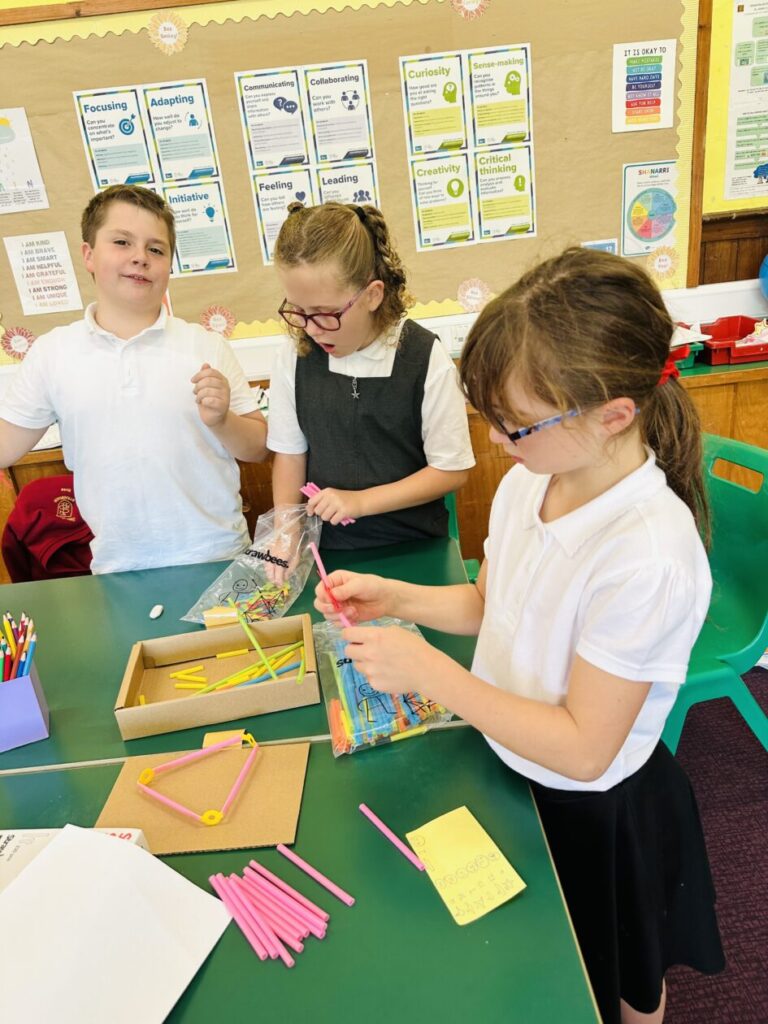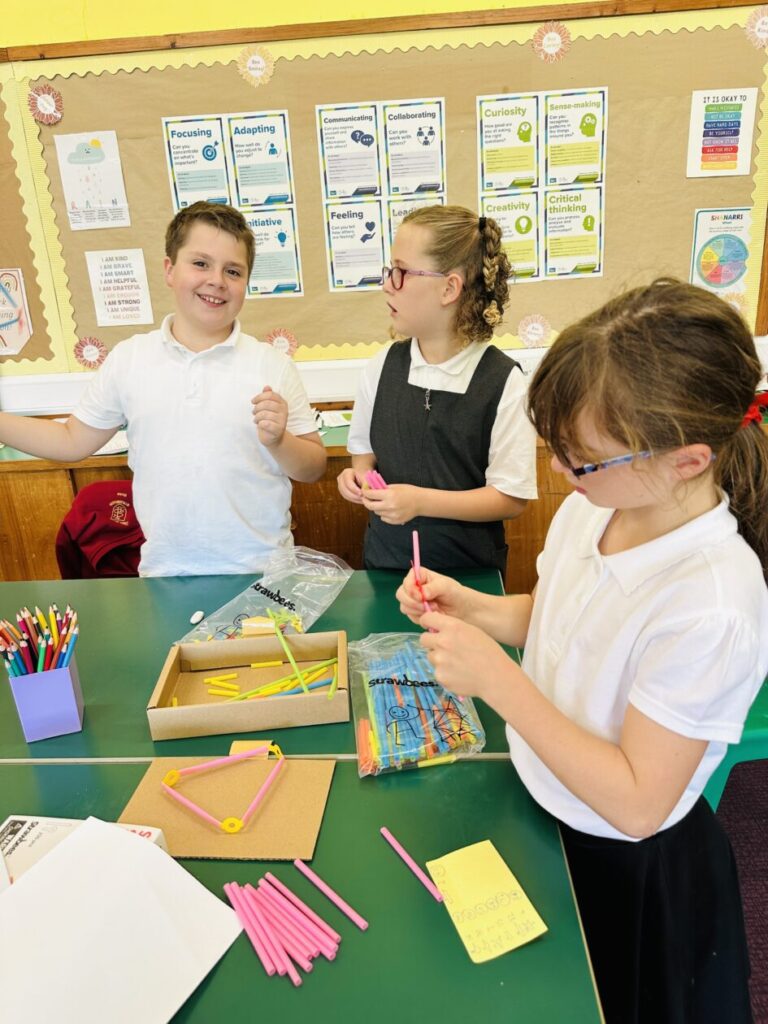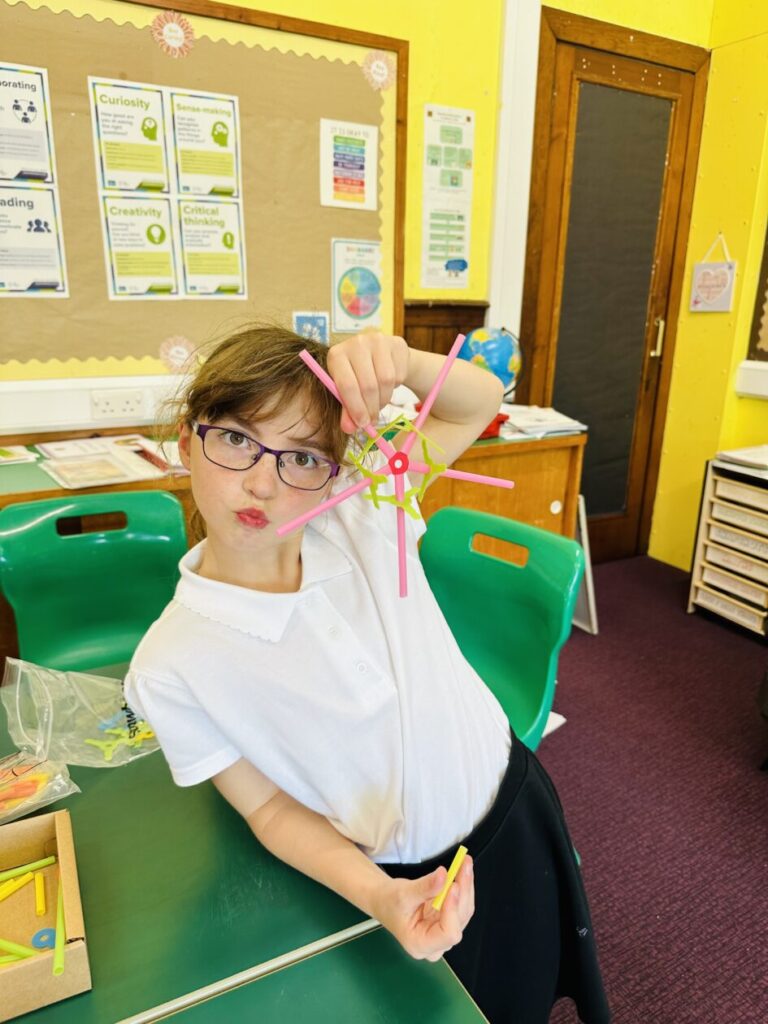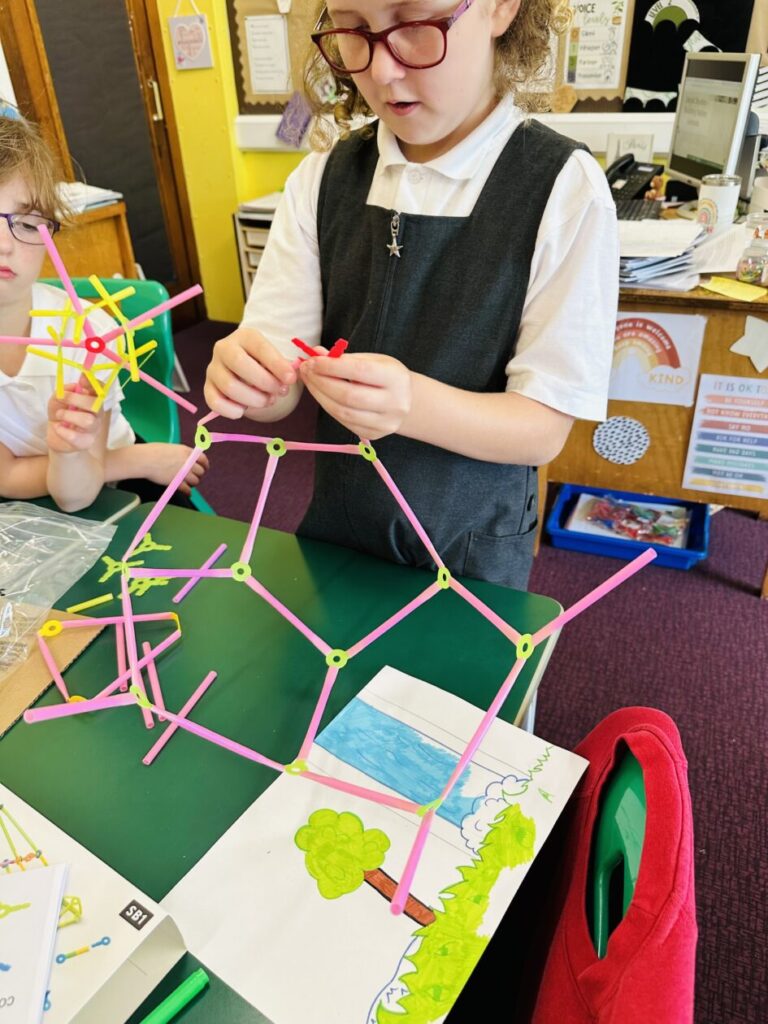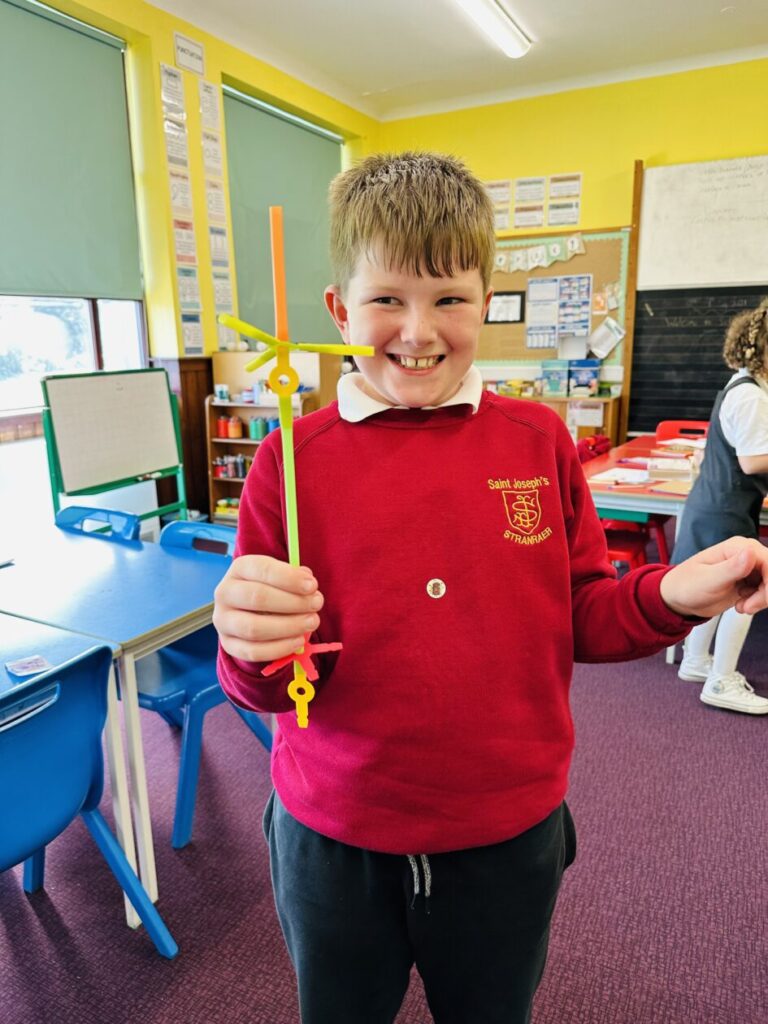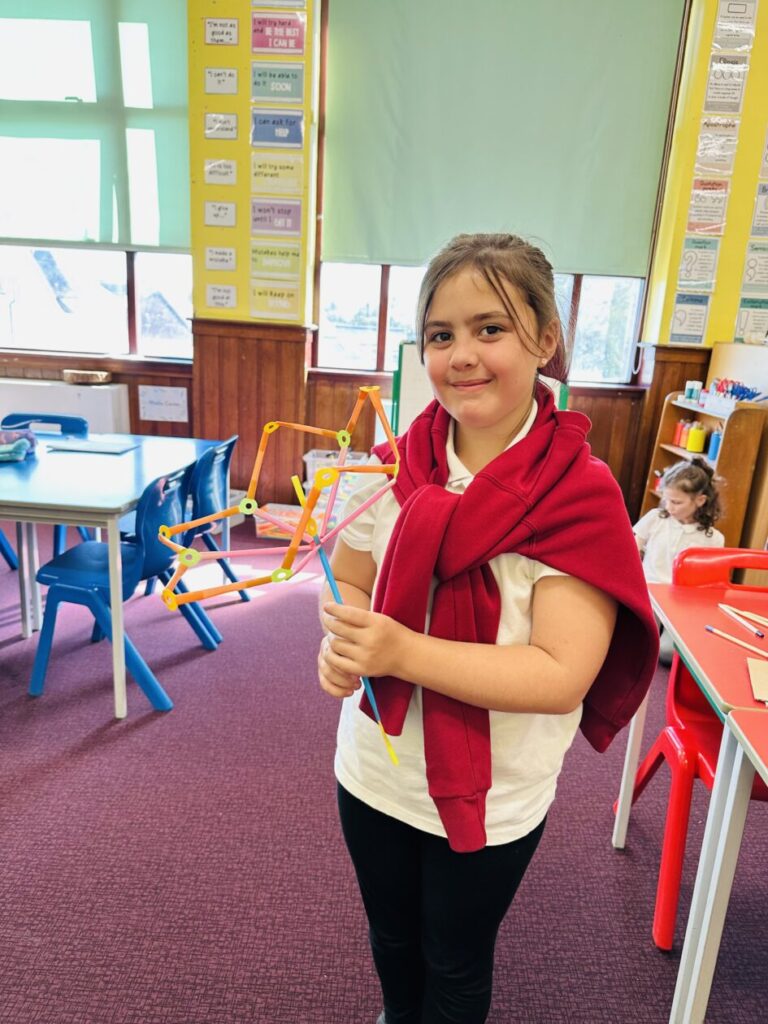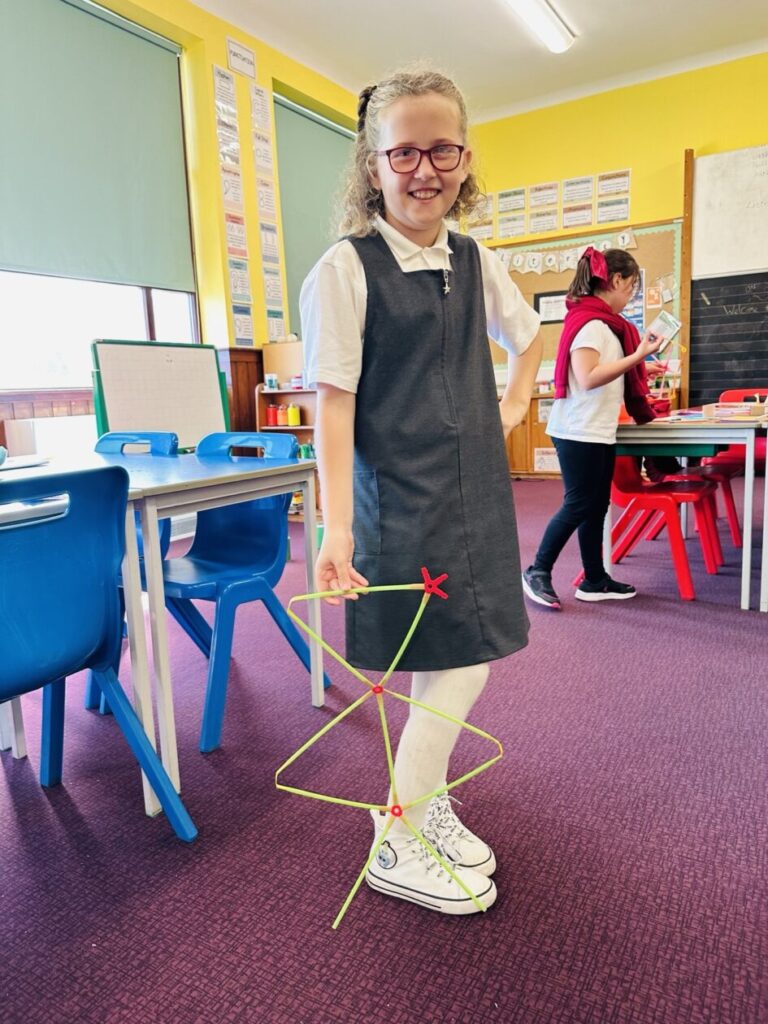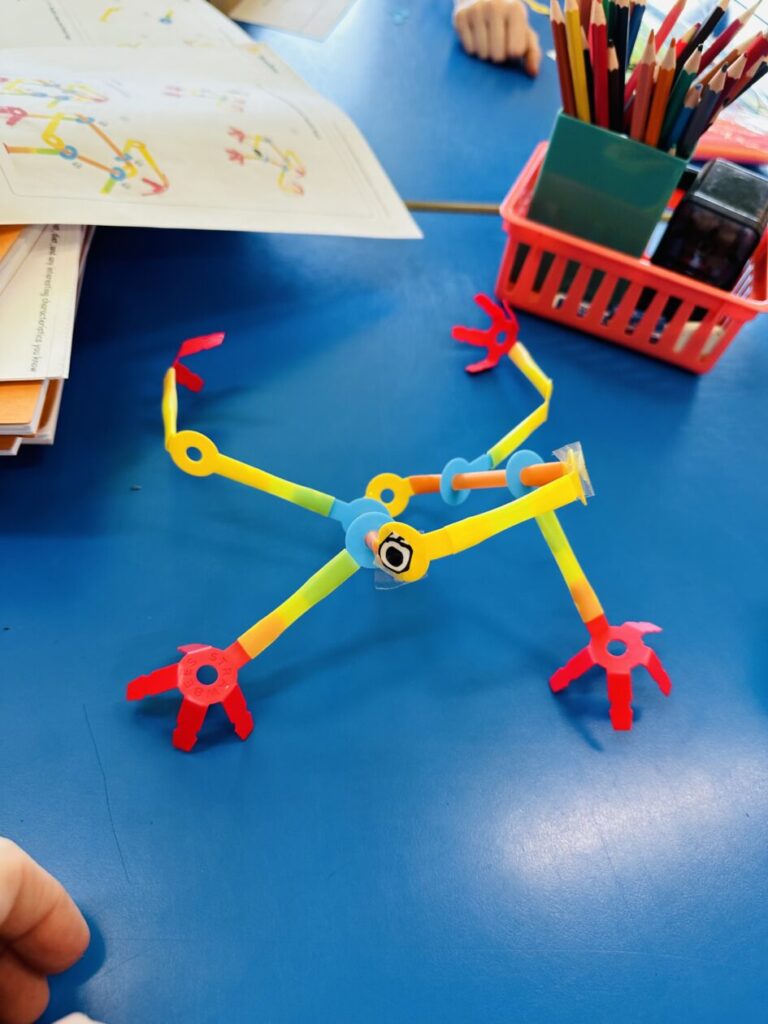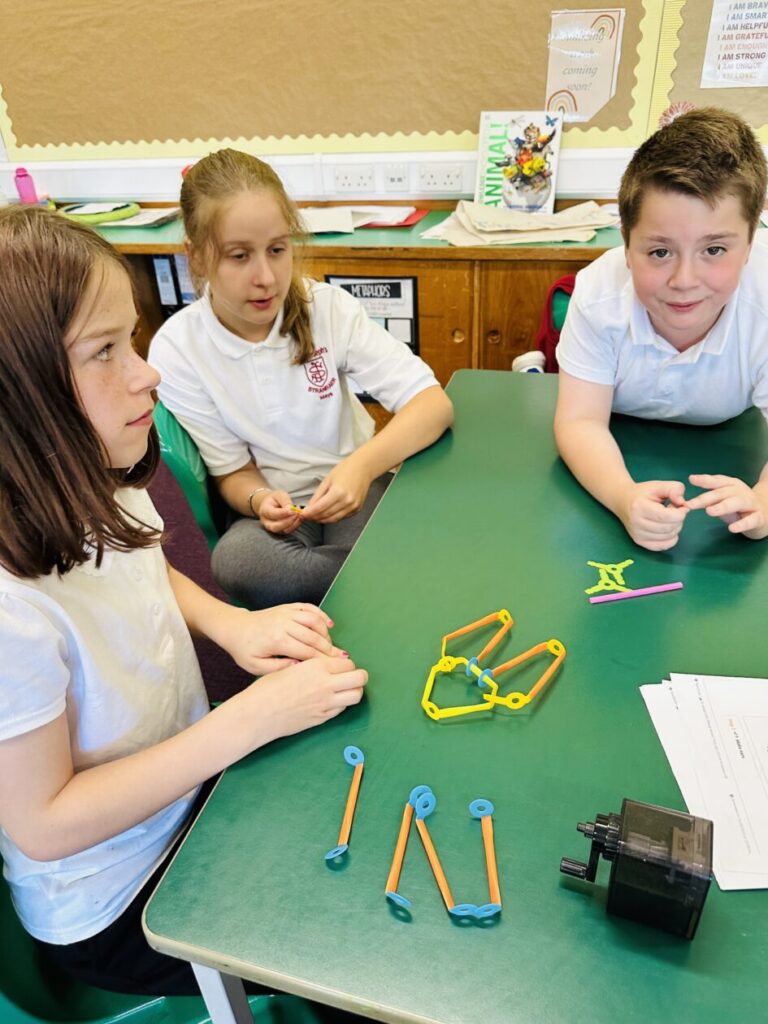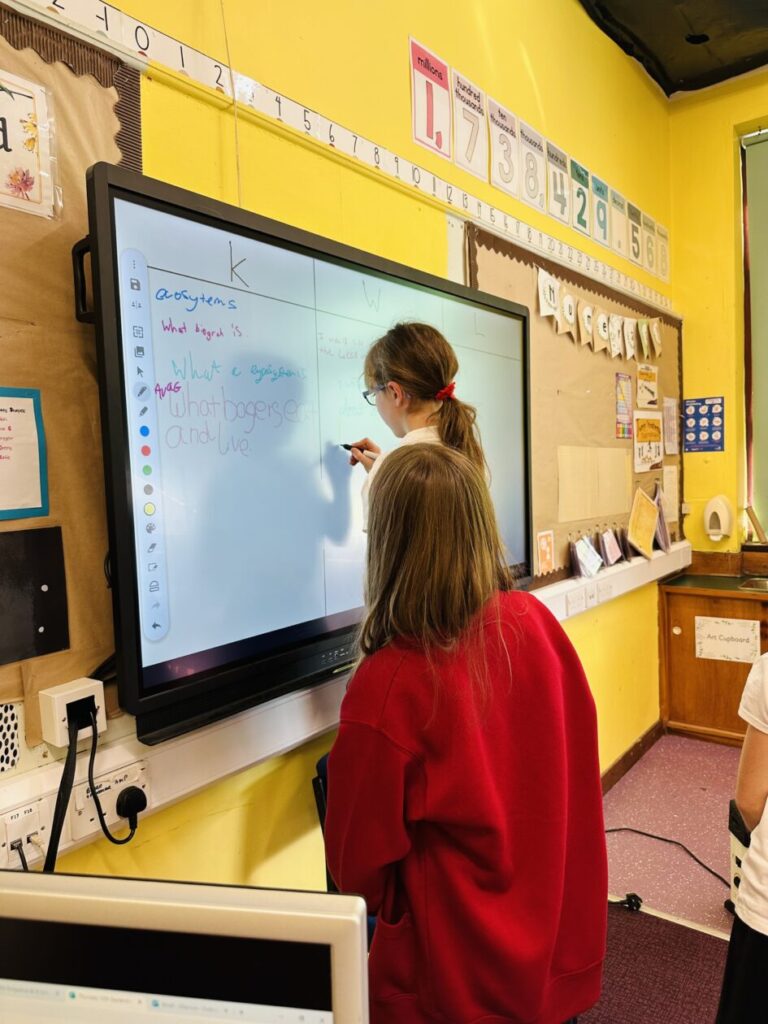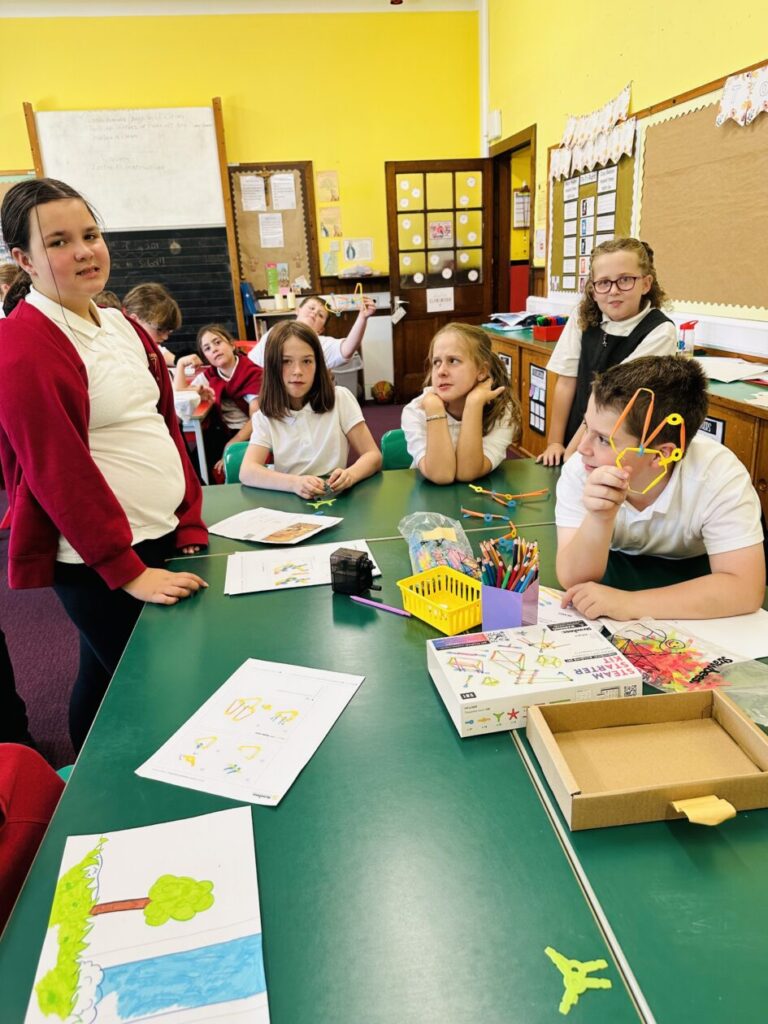Primary 5-7 Social Studies and Strawbees: A Creative Lesson on Scottish Biodiversity!
This week, our primary 5-7 pupils continued exploring our social studies topic on Scottish local biodiversity, but with a fun twist! Earlier in the week, teachers from St. Joseph’s and Portpatrick Primary attended a training session on an exciting new product called Strawbees. For those unfamiliar, Strawbees is a creative construction kit that uses colourful straws and connectors to build a wide range of structures, encouraging imaginative play, problem-solving, and teamwork.
To kick off the lesson, the children shared what they already know about Scottish biodiversity, what they would like to learn, and what they have discovered so far. This led to some great discussions and set the stage for the creative challenge that followed.
While our primary 7s were busy with their Playmakers session today, led by Alison Murray, the primary 5s and 6s had the chance to experiment with the Strawbees kits. They got creative and came up with some wonderful inventions, including a shield, body armor, a wand, a windmill, a flower, an umbrella, a DNA strand, and even a person!
Once the primary 7s returned, the fun continued with a challenge: each group was given instructions to create a model of a Scottish mammal, which the other groups had to guess. We saw fantastic attempts at a fish, a frog, and the beginnings of a fox (though even Miss Lisi found the fox tricky to complete!). It was a lively session filled with collaboration, teamwork, and a lot of laughter!
At the end of the lesson, the pupils took time to reflect and provide feedback. They first shared information about the animals they created, which served as a great revision exercise. Next, they noted what they enjoyed about using Strawbees and what they found challenging. The feedback was overwhelmingly positive! They described Strawbees as “so much fun,” “engaging,” “full of ideas,” and “interesting.” Pupils loved how versatile the kits were, how easily they connected, and the countless things they could build. The biggest challenge? Learning to use them more effectively and, of course, needing more Strawbees!
The pupils also reflected on the meta-skills they utilised during the session. Many agreed they had effectively used skills like leading, collaborating, communicating, showing initiative, sense-making, creativity, and curiosity. Some groups were proud of their inclusivity and teamwork, while others felt they could improve in areas like turn-taking and working together more harmoniously.
Overall, it was a fun and engaging session, full of learning and creativity. As you can see from the photos below, there’s a new favourite activity —we need more Strawbees!
- UNCRC Children’s Rights:
- Article 12: Right to express views.
Pupils had the opportunity to share their knowledge about Scottish biodiversity and provide feedback on their experiences with the Strawbees activity. - Article 29: Right to education that develops talents and abilities.
The lesson encouraged creativity, problem-solving, and critical thinking through hands-on activities with Strawbees. - Article 31: Right to play, leisure, and recreational activities.
The session was designed to be engaging and fun, allowing pupils to learn through play and creativity.
- Article 12: Right to express views.
- SDG Goals:
- Goal 4: Quality Education – Promoting inclusive and equitable quality education.
The lesson provided a collaborative and interactive learning environment that catered to diverse learning styles. - Goal 15: Life on Land – Learning about and promoting biodiversity.
Pupils explored and learned about Scottish mammals and local biodiversity, fostering respect and awareness for life on land. - Goal 14: Life Below Water – Conserve and sustainably use the oceans, seas, and marine resources.
Pupils learned about aquatic species, like fish and frogs, as part of their exploration of Scottish biodiversity, fostering awareness and understanding of life in water ecosystems.
- Goal 4: Quality Education – Promoting inclusive and equitable quality education.
- SHANARRI:
- Achieving:
- Pupils developed new skills in creativity, teamwork, and communication while constructing models and reflecting on their learning.
- Included:
- The lesson ensured all pupils were actively involved, contributing to group activities, and feeling part of the class community.
- Respected:
- Pupils’ ideas and feedback were valued throughout the session, promoting a culture of respect and open communication.

